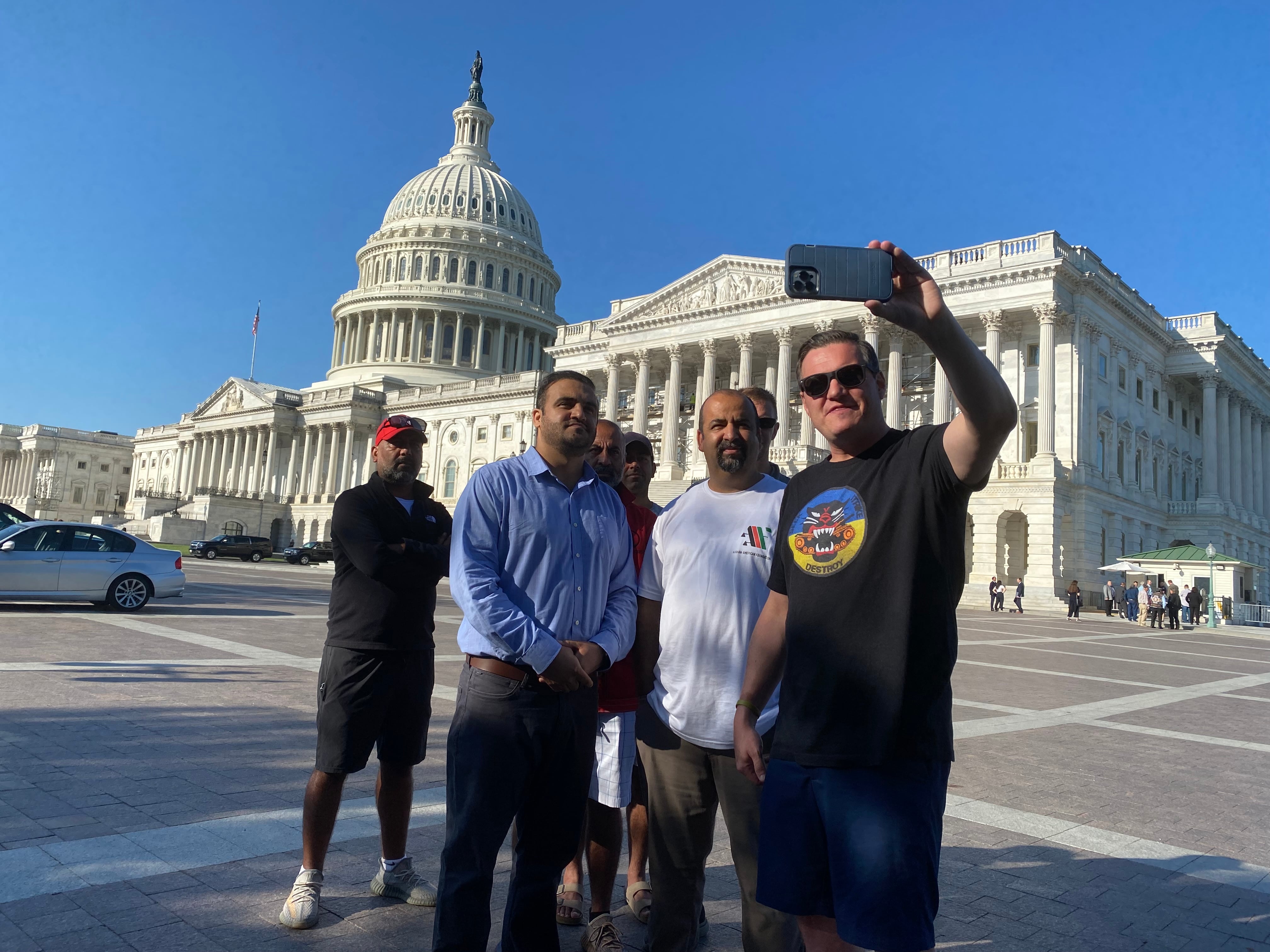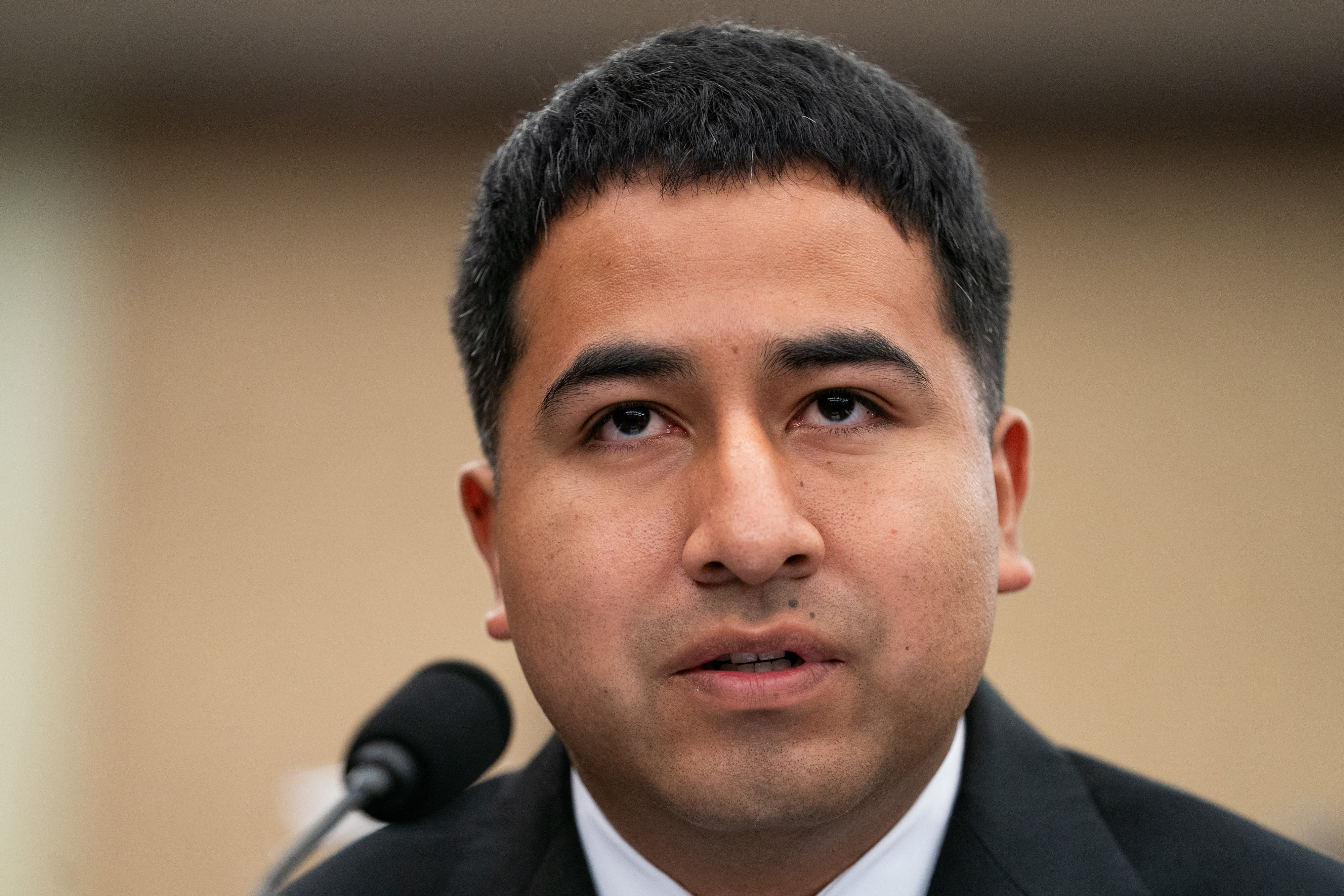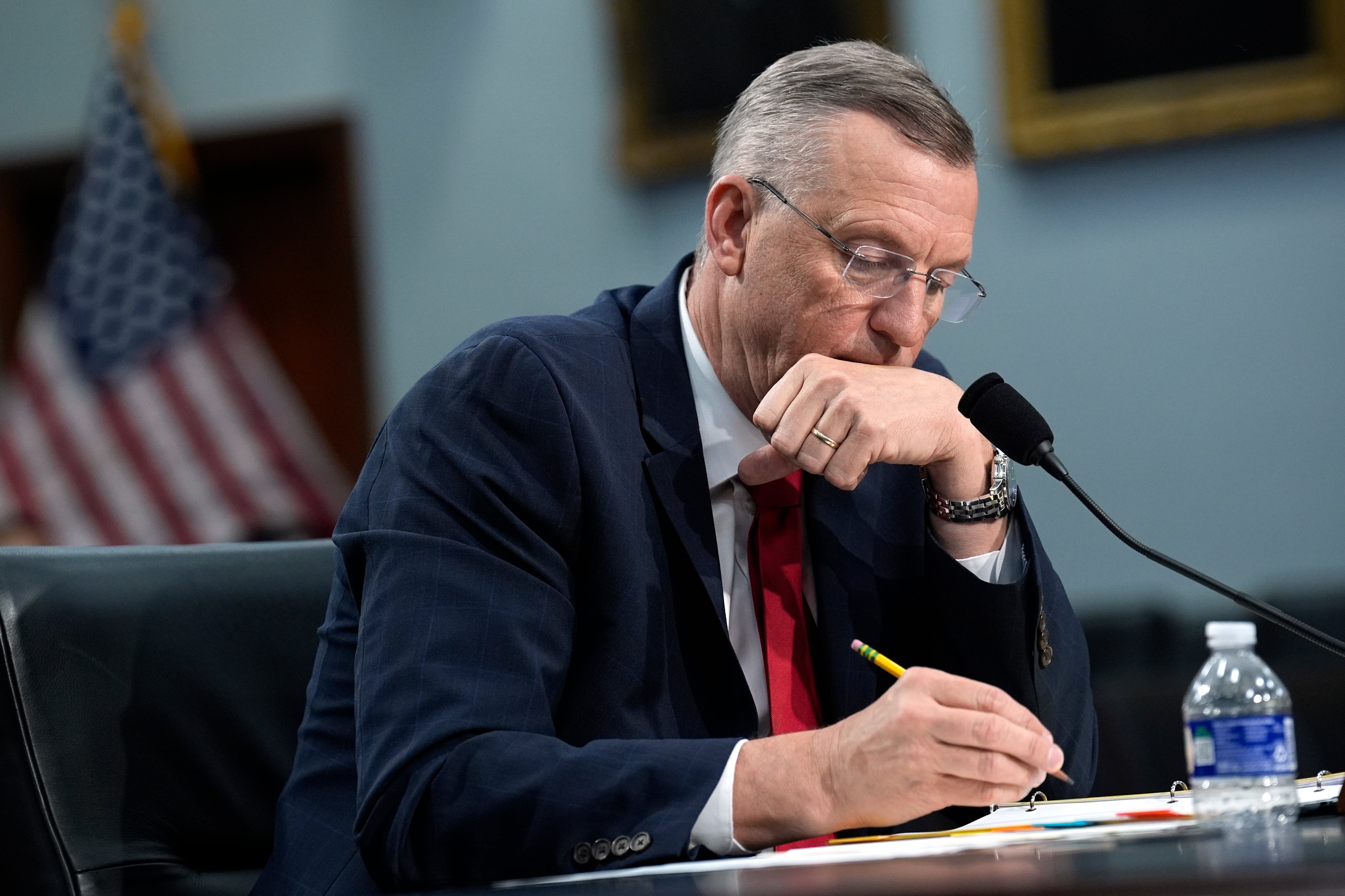For the second time in two months, dozens of veterans and military advocates are holding an around-the-clock vigil outside the U.S. Capitol in an effort to advance legislation they say will save lives.
But unlike in early August, when the protest focused on better benefits for victims of military burn pits, this effort is centered on aiding Afghan allies in their attempts to escape Taliban persecution amid worsening conditions in their home country.
“These people have a knife hanging over their heads, and we’re telling them it could take years before [the United States] helps them,” said Safi Rauf, a Navy reservist who spent four months in Taliban captivity after he was caught trying to aid allies trying to escape Afghanistan. “The toll this is taking on people’s mental health is unimaginable.”
RELATED
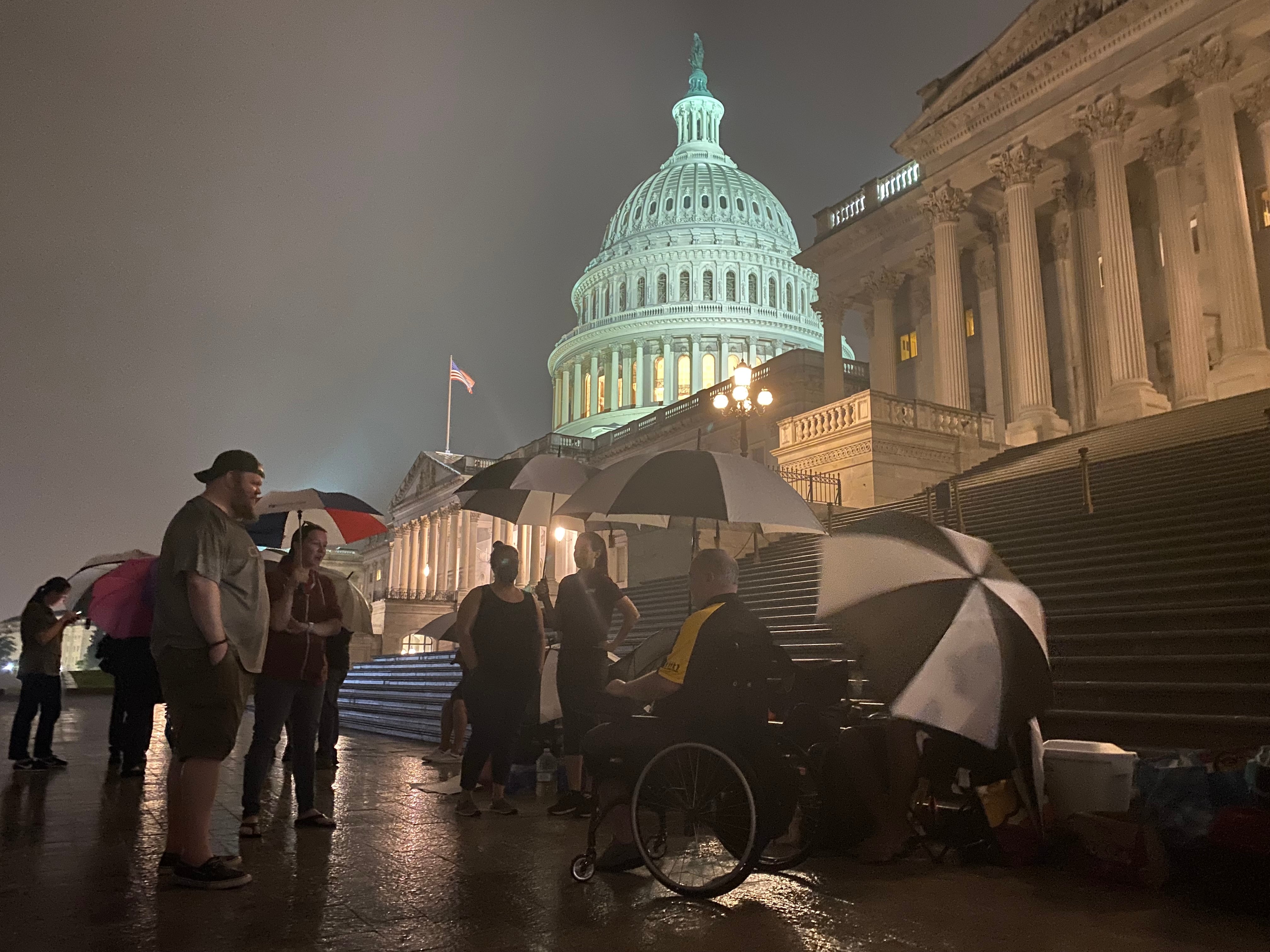
Supporters are pushing for Congress to immediately pass the Afghan Adjustment Act, legislation concerning the vetting and processing of Afghans applying for permanent legal status.
Individuals who submit to additional background checks could receive permanent humanitarian status in America. The bill would also expand eligibility for special immigrant visa access to Afghan refugees, and make improvements to those assistance programs.
On Friday, a coalition of 24 veterans organizations — including The American Legion, the Veterans of Foreign Wars and Iraq and Afghanistan Veterans of America — sent a letter to congressional leaders calling for the measure to be included in must-pass budget legislation scheduled for later this month.
“For two decades, we fought shoulder-to-shoulder with brave Afghan allies who served with and protected American forces, fighting for the freedom of Afghanistan and its people,” the groups wrote.
“Many of us made personal commitments to our allies, and we believe that the United States has a sacred obligation to the people of Afghanistan. We must honor the promises we made as a nation and are duty-bound to fulfill.”
Since U.S. military forces withdrew from Afghanistan and Taliban forces took control of the country in August 2021, nearly 80,000 refugees have been evacuated from the country. But many remain in legal limbo, as processing of immigration applications have dragged on for months.
Tens of thousands of others left overseas face even bleaker odds and limited access to embassy services that could help speed up their escape from Taliban persecution.
“There are people who aren’t going to make it through the winter unless this law gets passed soon,” said Matt Zeller, a senior advisor at IAVA and a longtime advocate for support services for Afghan allies who worked alongside American military forces.
“We all see it happening,” he said. “And there are people all over the world right now who partner with the United States who are watching this and wondering if we are trustworthy.”
RELATED
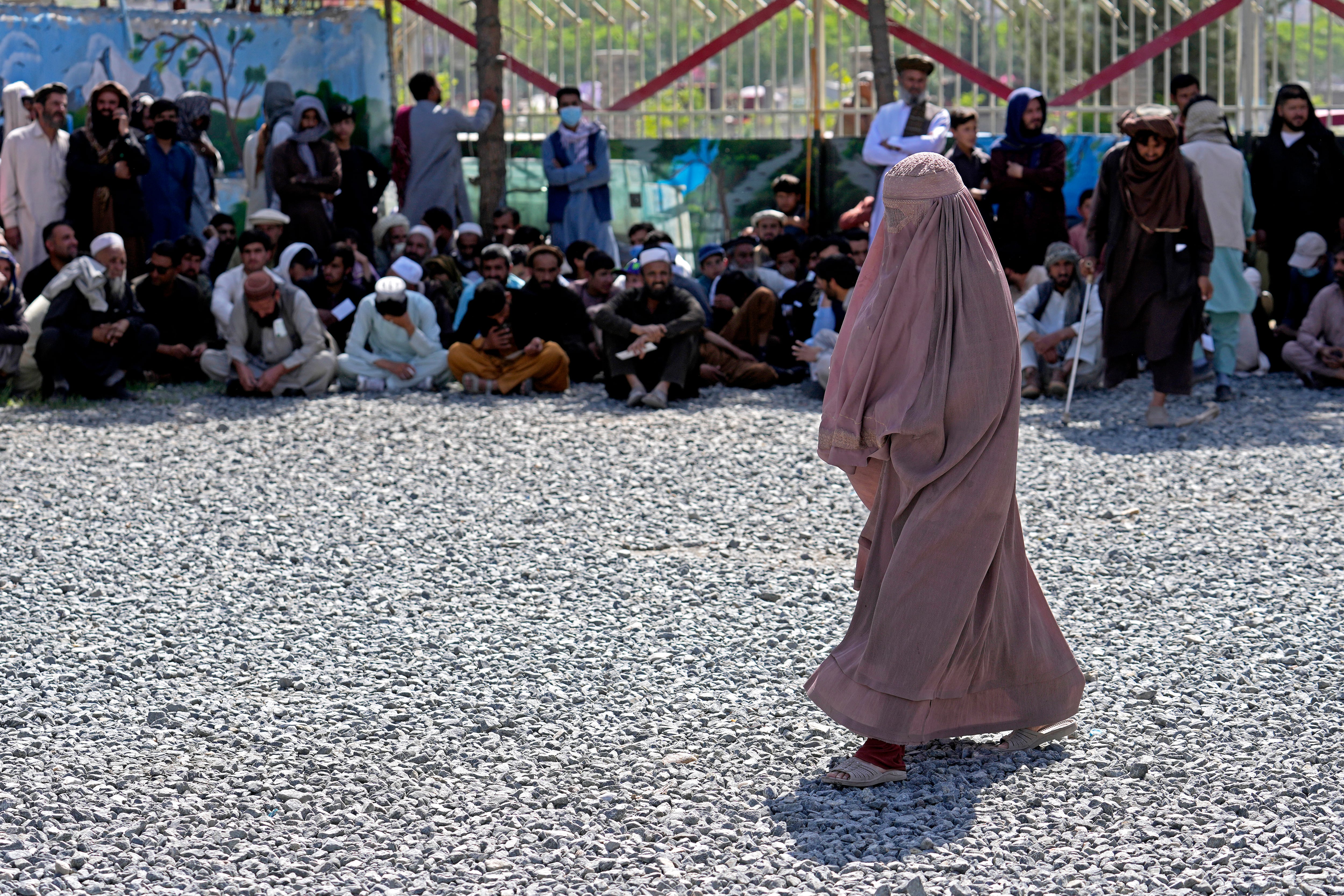
So far, the legislation has been stalled by concerns — largely from Republican lawmakers — over whether the would-be immigrants pose a security threat.
For the past six days, supporters have camped out near the Capitol steps with signs and flyers disputing those concerns and pleading with lawmakers for action.
Every evening, the number of protestors swells ahead of a daily dinner rally. Every morning around 4 a.m., the group clears its lawn chairs and supplies from the Capitol lawn to avoid a soaking from the Capitol’s sprinkler system.
Shershah Wahidi, an Afghan national who worked with the United Nations there until the Taliban takeover, was evacuated from Kabul International Airport on Aug. 21, 2021. His escape traversed through the same airport gate where a few days later a suicide bomber killed 13 U.S. servicemembers and hundreds of civilians.
“I came here with my four kids, fearing for our future and our safety,” he said. “I applied for asylum, but I still haven’t heard anything back and my [temporary immigration] status expires next year. Everything is just up in the air at this point.”
Wahidi, who works as a financial analyst at George Washington University, said he hopes his presence at the Capitol puts a human face on the suffering that the pending legislation could help alleviate.
That worked for the toxic exposure bill passed last month. After months of procedural delays in Congress, a coalition of veterans groups held a five-day, round-the-clock protest outside the Capitol to bring public attention to their ongoing health issues and the need for additional research into burn pit injuries.
The burn pits protest drew national headlines, in large part because of high-profile partners like comedian Jon Stewart. The new protest (which features several veterans who took part in the last event) entered its sixth day on Tuesday.
It hasn’t gained the same level of attention, but Zeller said the need for action is just as urgent.
Congress must pass a budget extension before Sept. 30 or trigger a partial government shutdown. If the Afghan Adjustment Act is attached to that spending measure, the changes could be signed into law before the start of October.
If it’s not, however, supporters will have to wait until mid-November for any hope of action. Lawmakers are scheduled to go on a pre-election break starting Oct. 1, and are not scheduled to return to Washington until seven weeks later.
Zeller said the protestors are prepared to spend the next two months camped outside the Capitol if Congress doesn’t act on the issue.
“These Afghan allies are the hardest people on the planet,” he said. “They’ve been through 40 years of war and famine. So, they’re going to be here, and we’re going to be here, until this law gets passed.”
Leo covers Congress, Veterans Affairs and the White House for Military Times. He has covered Washington, D.C. since 2004, focusing on military personnel and veterans policies. His work has earned numerous honors, including a 2009 Polk award, a 2010 National Headliner Award, the IAVA Leadership in Journalism award and the VFW News Media award.
